Cross-Strait Couple Establishes Family with Love, Deep Bond
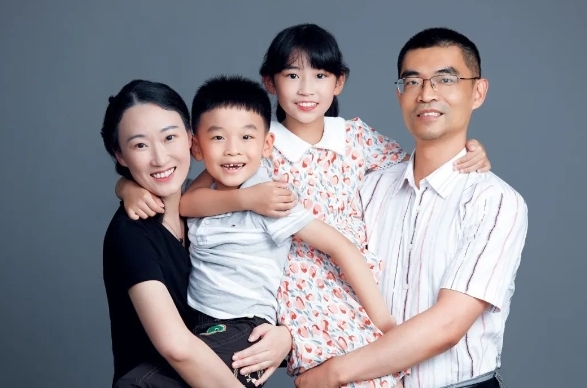
Ting Wenyun, from Taipei, China's Taiwan, lives in Beijing with her happy family. Ting, a physician, works in the plastic surgery department of Peking Union Medical College Hospital (PUMCH). She is also a member of the standing committee of an association composed of doctors, from China's Taiwan, who are qualified to work as physicians in the Chinese mainland. Ting's husband, Wang Qiang, is a doctor in PUMCH's digestive system department. The cross-Strait couple met and fell in love at the hospital. Working hand-in-hand, Ting and Wang make their contributions to the enhancement of cross-Strait communications in the medical field. The couple has witnessed, with their family, the prosperity and great progress reached during the development of their motherland.
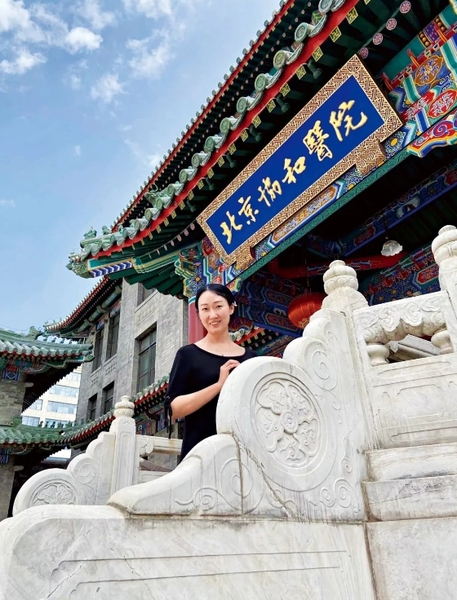
Dream Come True
Ting, who was born and raised in China's Taiwan, received her college education at Soochow University (SCU), in Taipei.
"When my father studied in a medical college, a lot of senior professors in his college had come from Peking Union Medical College. Students, who were of the same generation as my father, had considered Peking Union Medical College to be a medical college at a classic level. So, when my father learned PUMCH was recruiting students, he immediately suggested I have a try," Ting recalls.
She passed the recruitment exams and moved to Beijing in 2002. It was not the first time she visited Beijing. During her summer vacation, when she was 12, she traveled with her family to the Chinese mainland.
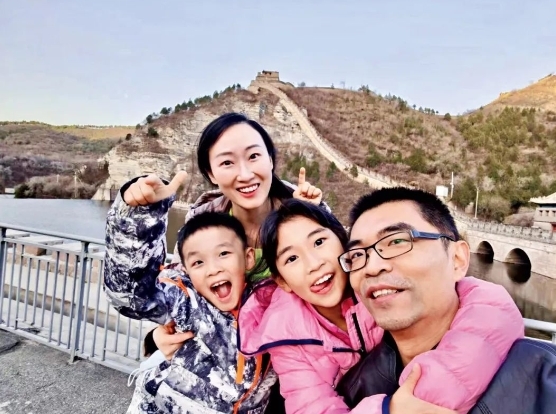
Family of Happiness
After Wang completed his undergraduate studies at Cheeloo College of Medicine, under Shandong University, he began his postgraduate and Ph.D. studies at PUMCH. Ting and Wang met and got to know each other while studying and then working at the hospital. Ting describes her early interaction with Wang: "He taught me clinical-application knowledge, and he helped me get used to the lifestyle in the Chinese mainland. He soon became a good friend, and a good teacher, to me."
Ting graduated with a Ph.D. in 2008. Both she and Wang hoped to stay in Beijing, and to continue working at PUMCH. They succeeded in passing a series of tests, and they began working in the same hospital. They got married in 2010, and eventually established their small, cross-Strait family. Now, they have a daughter and a son. Wang's parents have relocated from their hometown, in east China's Shandong Province, to Beijing to live with their son's family.
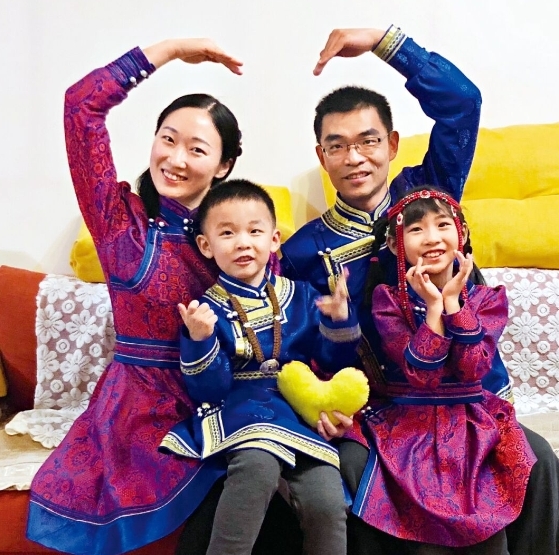
Ting and Wang are busy every day. They concentrate on their medical studies, and on their clinical and scientific research. It is particularly important for the couple to fully understand each other, and to work as "a good team." They are grateful Wang's parents have "backed them up." Says Ting: "Sometimes my husband and I both have meetings on weekends. My parents-in-law help take care of our children."
When talking about the family education they provide their children, Ting says she and Wang must first set a good example for the children. They teach the children the importance of showing filial piety to the elderly. They urge their children not to waste food, to sort the garbage, to donate clothes they no longer wear, and to live a thrifty life. "Living under the same roof, we may have different opinions when we encounter a problem. It is always important to think of each other's position, and to show mutual respect and understanding. Sometimes, we choose to 'draw back' because we consider each other as our loved ones," Ting explains.
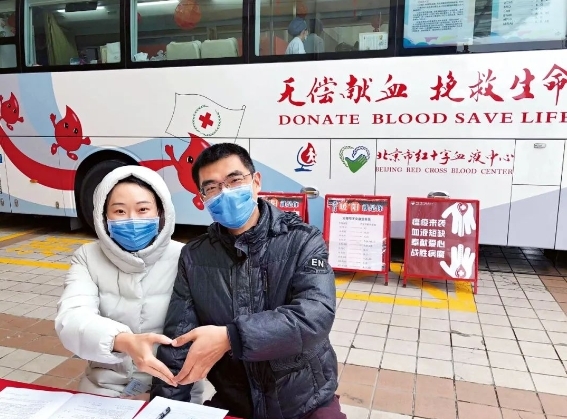
Like a 'Bridge'
Ting has lived in the Chinese mainland for 21 years. She often tells her father about the rapid progress reached in medical science, and about the high-quality development of the medical insurance system on the mainland. In 2019, she was selected a member of the standing committee of an association composed of doctors, from China's Taiwan, who are qualified to work as physicians in the Chinese mainland. Ting has visited remote areas, in regions outside Beijing, to provide voluntary medical services. She wants to act like a "bridge," to inspire more doctors from China's Taiwan to make contributions to the development of medical care in the Chinese mainland.
Ting and Wang work diligently. They treat patients as if they were family members; thus, they have a good reputation among both their patients and their colleagues. Ting and Wang care about public-welfare-related issues; for example, the couple has donated blood more than 30 times. "I donated blood several times when I was in Taiwan. Blood donations can help patients and can save their lives in an emergency. The fact I am qualified to donate blood means I am a healthy person, so I am willing to help those in need," Ting says.
Ting's family, filled with happiness, is like a "window," through which her relatives and friends can better learn the vigorous development and positive social atmosphere in the Chinese mainland. "The mainland encourages young people from Taiwan to come and start businesses. Tremendous opportunities are here for us to help build the motherland. Once they get a chance to come, the young people from Taiwan will better understand that our historic roots and genes were born here," Ting adds.
Ting and Wang's family was selected a National Most Beautiful Family in 2023. The couple hopes more and more people from China's Taiwan will see the happiness of their family, and will take part in cross-Strait communications.
Photos from Interviewees
Source: Department of Family and Children's Affairs of the ACWF
(Women of China English Monthly February 2024 issue)
Please understand that womenofchina.cn,a non-profit, information-communication website, cannot reach every writer before using articles and images. For copyright issues, please contact us by emailing: website@womenofchina.cn. The articles published and opinions expressed on this website represent the opinions of writers and are not necessarily shared by womenofchina.cn.








.jpg)

 WeChat
WeChat Weibo
Weibo 京公网安备 11010102004314号
京公网安备 11010102004314号